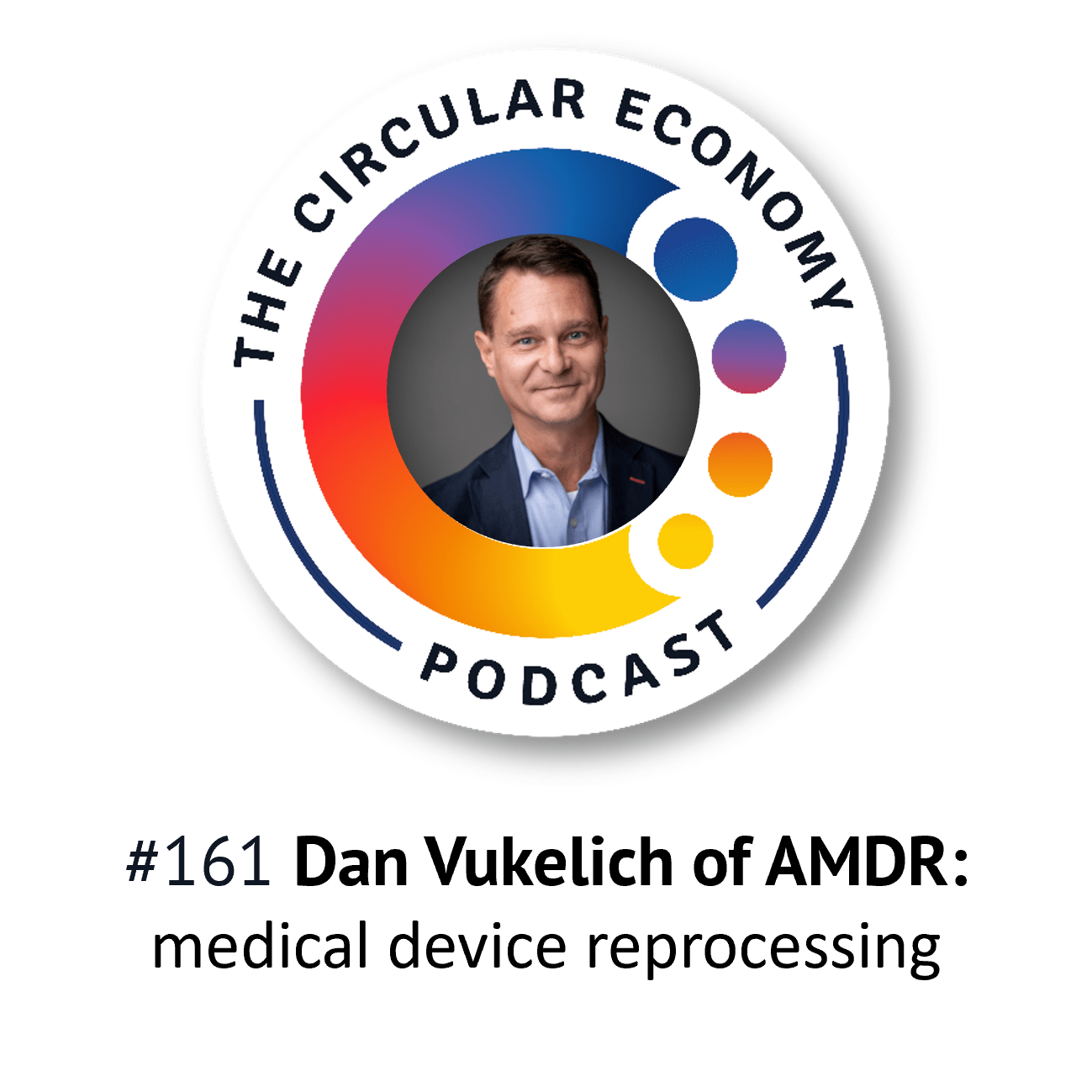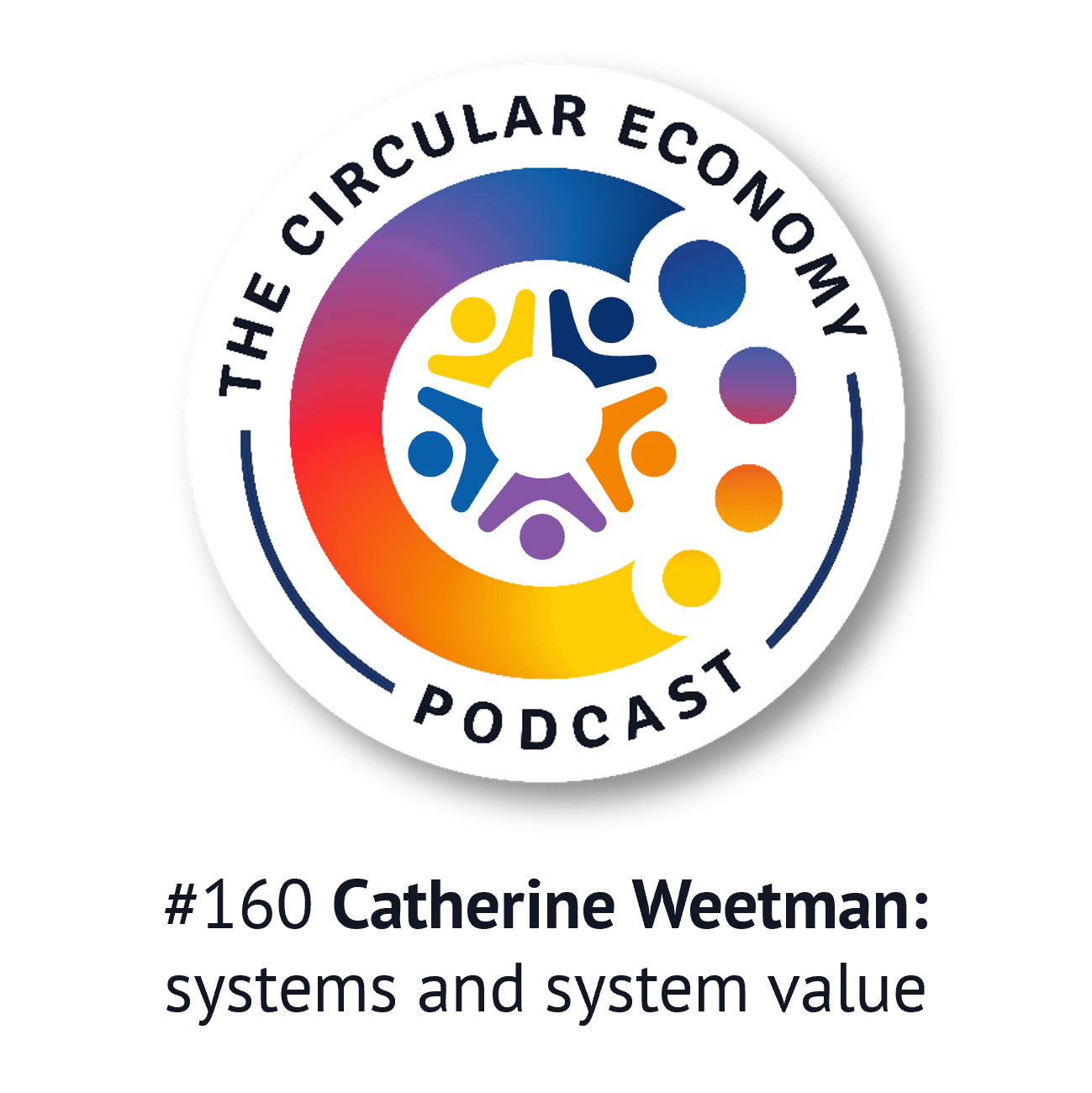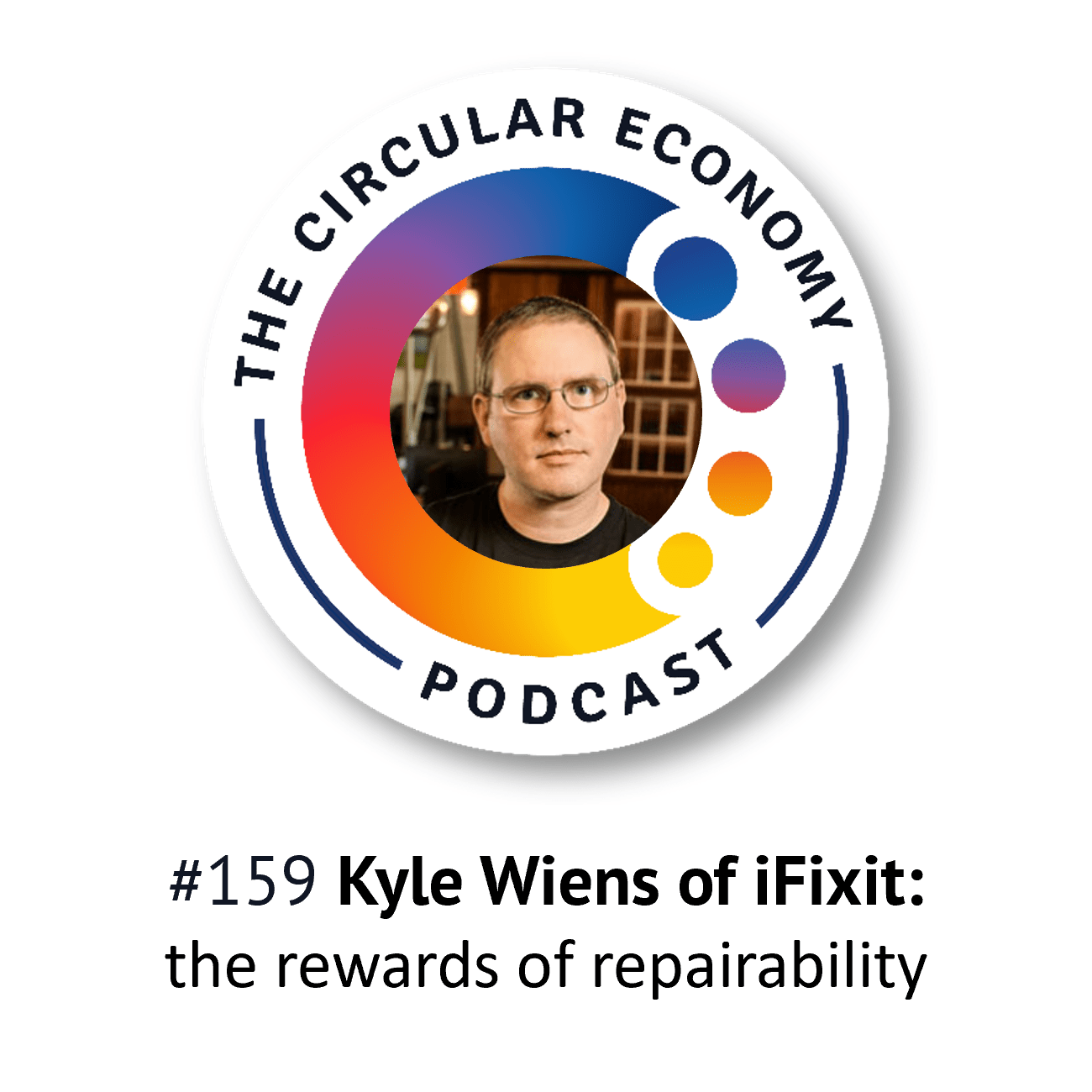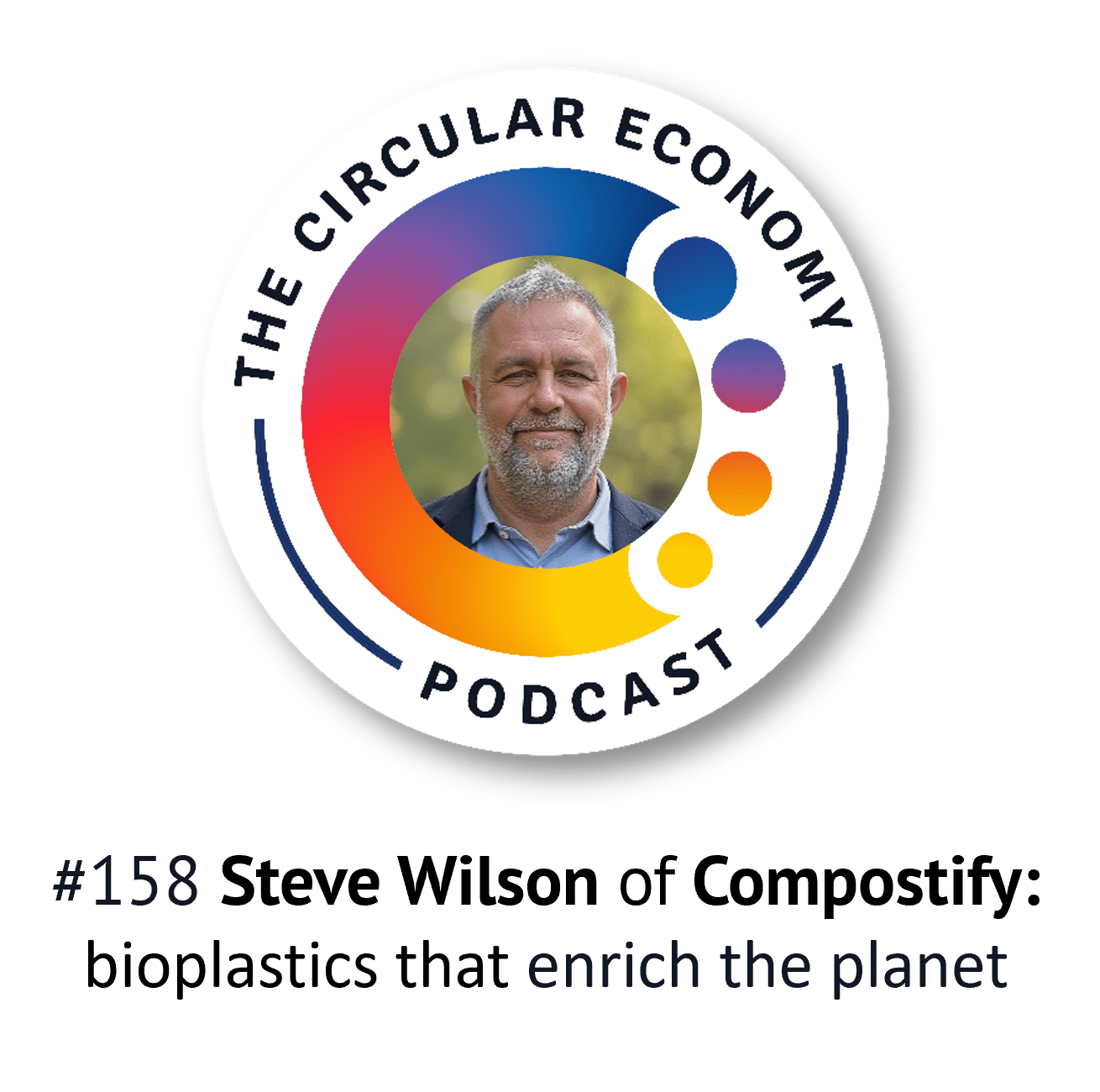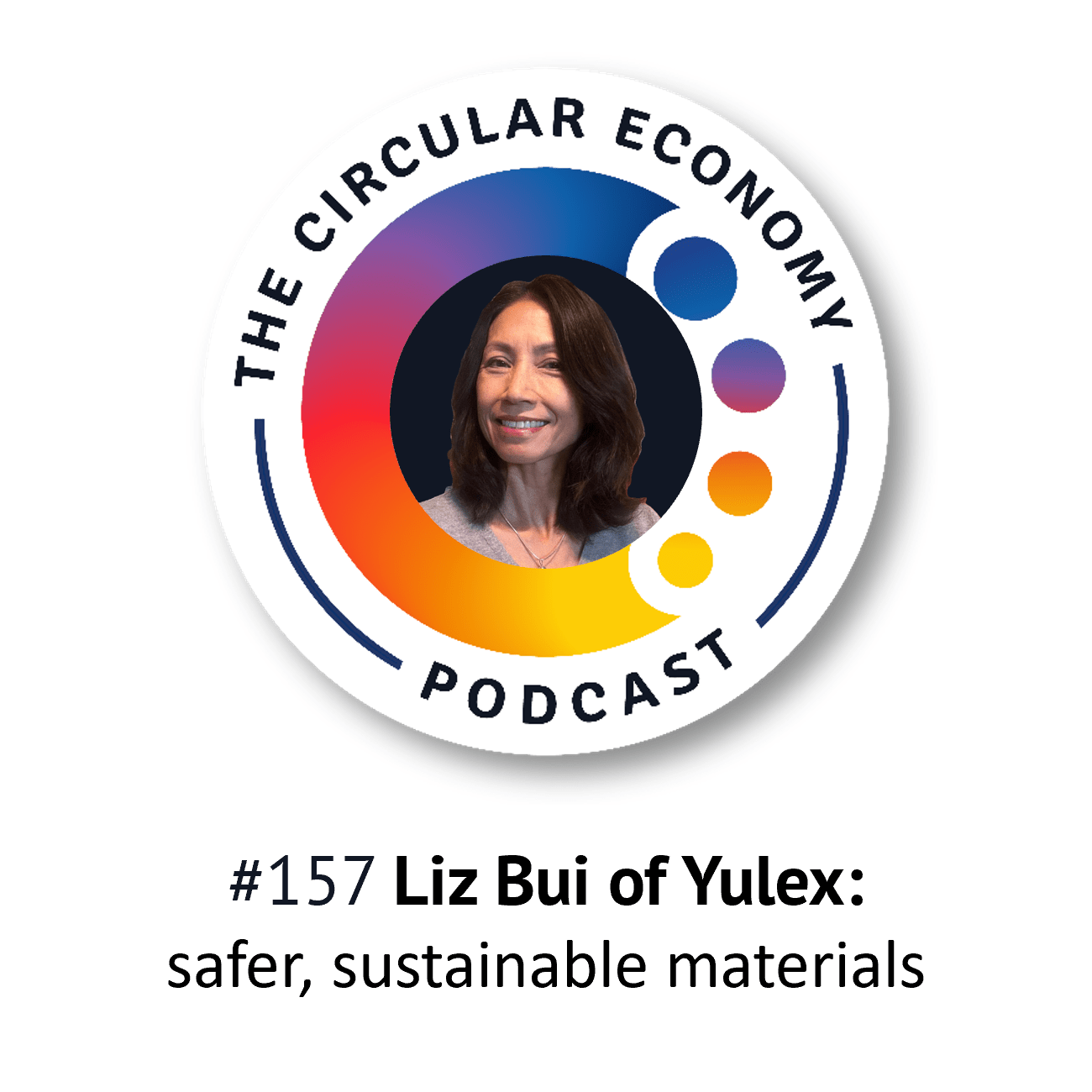Podcast: Play in new window | Download
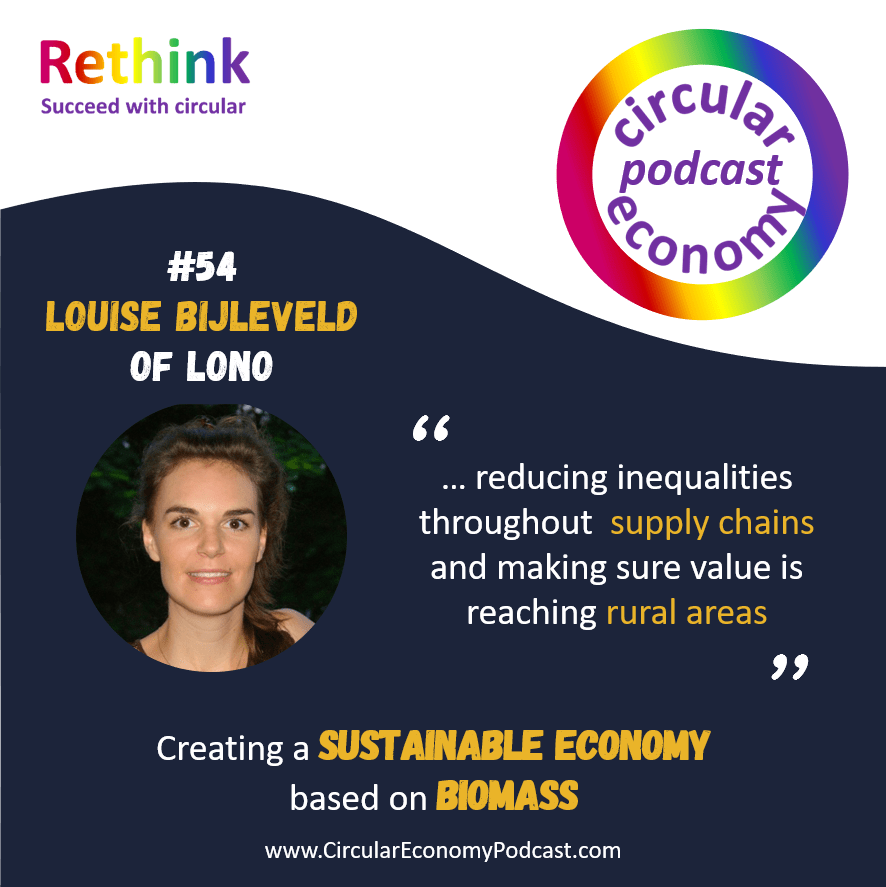
Catherine Weetman talks to Louise Bijleveld, Co-Founder of LONO in Côte d’Ivoire. Lono helps agro-industrial companies and farmer cooperative to create value from waste, by converting it into biofertilizers and biogas. Its overall aim is to help value reach rural areas and reduce the inequalities in agricultural supply chains.
Côte d’Ivoire is an important global producer of cocoa beans, cashew nuts, natural rubber and tropical fruits – all of these produce huge amounts of agricultural waste when harvested. The farms are often in remote areas, so it’s a big challenge to find ways to combine compatible feedstocks and make the logistics cost-effective.
Podcast host Catherine Weetman is a circular economy business advisor, workshop facilitator, speaker and writer. Her award-winning book: A Circular Economy Handbook: How to Build a More Resilient, Competitive and Sustainable Business includes lots of practical examples and tips on getting started. Catherine founded Rethink Global in 2013, to help businesses use circular, sustainable approaches to build a better business (and a better world).
Stay in touch for free insights and updates…
Read on for a summary of the podcast and links to the people, organisations and other resources we mention.
You can subscribe to the podcast series on iTunes, Google Podcasts, PlayerFM, Spotify, TuneIn, or search for “circular economy” in your favourite podcast app. Stay in touch to get free insights and updates, direct to your inbox…
Don’t forget, you can use our interactive, searchable podcast index to find episodes by sector, by region or by circular strategy. Plus, there is now a regular Circular Economy Podcast newsletter, so you get the latest episode show notes, links and transcript delivered to your inbox on Sunday morning, each fortnight. The newsletter includes a link to the episode page on our website, with an audio player. You can subscribe by clicking this link to update your preferences.
Links we mention in the episode:
- A Circular Economy Handbook: How to Build a More Resilient, Competitive and Sustainable Business – buy from any good bookseller, or direct from the publisher Kogan Page, which ships worldwide (free shipping to UK and US) and you can use discount code CIRCL20 to get 20% off: https://www.koganpage.com/CircEcon2 It’s available in paperback, ebook and on Kindle. If you buy it from online sources, make sure you choose the new edition with an orange cover!
- Search for episodes by sector, circular economy strategy, person or organisation, using the interactive episode index on our website
- Sign up to get the podcast player and shownotes for each new episode emailed to your inbox
- Visit the Linear Risks Guide page on our website to download the free 7-page Linear Risk Matrix mini-guide, or get the full 23-page Linear Risks Guide (also free).
- Register for the roundtable (free) with Catherine Weetman “A JOURNEY TO A SUSTAINABLE SUPPLY CHAIN” with the International Purchasing & Supply Chain Management Master’s at the ESSEC Business School, June 23, 2021, and I’ve included the registration link in the shownotes.
- Global Sustainable Supply Chain Summit 8th – 9th of June https://www.globalsustainablesupplychain.com/
- https://www.lonoci.com
- https://facebook.com/LONOCI
- https://twitter.com/lono_ci
About Louise Bijleveld
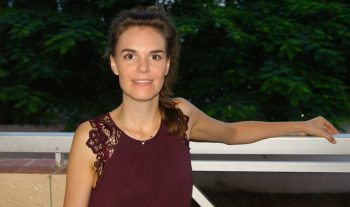
Louise and Noel decided to start an entrepreneurial adventure together back in 2010, but it was only in 2016 that these plans became reality. In that year, they created the social enterprise LONO. LONO’s main mission is to create direct value by transforming organic waste into bio fertilizers and energy.
Louise was born and raised in the Netherlands. She studied Sociology and International Development Studies in Amsterdam and after completing her studies she started working in the public sector. She held several positions within different ministries, was positioned at the representation to the European Union in Brussels for 6 months and eventually worked for the Ministry of Foreign Affairs on development cooperation and foreign trade. Although working with highly passionate and talented people in the public domain, she started missing concrete and direct value creation in her job after several years.
When she moved to Côte d’Ivoire, she wanted to learn how to do business first, so she started working as a consultant for an Ivorian company as international business developer in 2016 and 2017 while setting up LONO ‘on the side’. By 2018 she continued to work full-time for LONO. Within the company, she is responsible for non-technical business operations, partnerships and social impact. She was named Forbes 30 Under 30 European Social Entrepreneur in 2019.
Interview Transcript
Provided by AI – add 4:20 mins for the finished episode
Catherine Weetman 00:00
Louise Bijleveld is the co founder of LONO, a social enterprise in Cote d’Ivoire, Africa. LONO’s main mission is to create direct value by transforming organic waste into bio fertilisers and energy. Louise was born and raised in the Netherlands and started her career in the public sector. She moved to Cote d’Ivoire, working as a consultant for an Ivorian company in 2016. Louise started setting up LONO with her co founder, Noel nGuessen as a side hustle alongside her main job. In 2018, she began working for low no full time. And in 2019, she was named as a Forbes 30 under 30, European social entrepreneur. Louise, welcome to the circular economy podcast.
Louise Bijleveld 00:47
Thank you, thank you for having me.
Catherine Weetman 00:50
And could we start by asking, where about LONO is based – paint a bit of a picture for us, please?
Louise Bijleveld 01:14
Yeah, so LONO is based in Cote d’Ivoire, Ivory Coast in West Africa. And we have an our main office and administrative office in Abuja, the largest city in the south of the country. And we have a second office, which is more of an operational office in Yama, Sukkot, which is about three hours from here. And there, we also have a private laboratory, which is based on the campus of the University there. But all our projects, and clients are kind of spread around the country. So we are a lot in the field as well. But this is where our offices are based.
Catherine Weetman 01:53
Right. So quite quite an expansive set of operations. And given that it didn’t start that all that long ago. So perhaps, we could start by asking you to explain what lono does, and what problems it solves for both people and planet.
Louise Bijleveld 02:10
Yes, so LONO, generally speaking, is is aiming to valorize organic waste. So concretely speaking, we transport different types of biomass, mainly agricultural waste, and organic household waste, in compost, bio, fertiliser and bio energy, bio energy being biogas but also biofuel like biodiesel for example. So, our aim is really to create a sustainable economy based on biomass that is currently perceived as waste. So, that is basically what we do. And we do so by by three main acts. And that is, firstly, we have develop the product line for smallholder farmers and and farmer cooperatives, which we call cubicle which is an equipment to produce compost and bio fertiliser on a small scale. And secondly, we provide services and advice services to different partners that, for example, want to do a feasibility study or they want to map the availability of environments. So we advise different partners both in the agricultural sector, but also local governments, for example, on what is possible with the waste that is available. And And then thirdly, we are involved with larger scale project implementation as well. So one example that is very, that we’re working on right now is the the construction of a compost factory, where we use household waste combined with other sources of waste that are available in that specific area. And we aim to do so for a price that is affordable by by a large part of the farmers here in Cote d’Ivoire. So really to produce for the local market,
Catherine Weetman 04:03
right. So that’s, that’s interesting. Three, three different streams. And just going back to the services stream, he talks about mapping the availability of biomass. So can you unpack that a bit for us? You know, what, what, what does that involve? And what, what are the different kinds?
Louise Bijleveld 04:22
Yeah, well, one example is, well, for example, the cocoa sector is very big in in Cote d’Ivoire. So there’s a lot of, there’s over a million cocoa farmers that all have a relatively small plantation, for example. And the waste is available on their plantations, but they’re very often located remotely with difficult access, so not roads that you can go that you can go to by by car, for example. So even though there’s a lot of biomass available, it’s very hard to do something that is too centralised, Because the transport of getting the wage to a certain point already, the first mile is incredibly, incredibly difficult. So there is a lot like everyone obviously sees that there is a potential because there’s biomass available, and we can do things with it. But the actual feasibility of that biomass that is available, that requires quite a lot of study on different levels, financial logistics, circularity. So also like, do you want to produce something for the farmers themselves, for example? So that is kind of what we are specialised in. But that could also be in other sectors? So for example, biofuel for transport, what could be the most interesting way to have a green source of energy for vehicles? For example? And, and how can you actually go from an ID to the execution of it. So that is the type of studies that that we provide as well, with the aim to actually make it happen. So not just to have a report laying somewhere but to to generate the new economy?
Catherine Weetman 06:07
Yeah, that sounds sounds quite involved. And I’m trying to picture what what the waist might look like. And I’m kind of guessing that the cocoa bean might be similar to a coffee cherry, so that the outer part of the waist is quite bulky. And what goes, what’s what’s sold from the farm, the bean is tiny by comparison with that. So though, so the farmer would end up with a really high volume of waste, it’s probably quite acidic. So a big problem to not do something with.
Louise Bijleveld 06:45
Exactly, yeah, so what the waste is used for now, either, it’s just left on plantations, which is not that great for many reasons. Also, for attracting pests, for example, it can spread to the to the trees that are that are currently good. But it also emits greenhouse gases when it drops in a specific way.
Louise Bijleveld 07:08
So there’s a lot of these advantages to just leave the the waste there. Some people, both businesses, and farmers choose to burn it to just get rid of it, because it also takes a lot of space. Because there’s way more biomass that is waste, then the product sold, as you mentioned, is the case for coffee as well. But burning is done just out in the open as well, most of the time. And then there’s landfills. So basically all three options that are used frequently now, or have huge disadvantages, both for people’s health and for Canada as well. Because it’s it harms the environment.
Catherine Weetman 07:48
Yeah, yeah, it can be highly acidic content. So going, going back a few years, your studies included sociology and International Development Studies. And then you worked for the European Union, and the Netherlands government on development and foreign trade. So I’m curious to know, what inspired you to set up lodo? You know, where did the idea come from? And and what made you think it could work?
Louise Bijleveld 08:13
Yes, that’s an interesting one. The idea dates back to 2010. Because that’s when I met Noel, the second co founder. And him being a chemical engineer, still involved in his studies of chemical engineering. And me being in sociology and International Development Studies, we have quite another hydro redox, on poverty and global inequalities, as students do, I think. So. We had a lot of these talks, and then slowly started this idea of how we can contribute something to that, from his technical perspective, but also his clear idea of the reality being from Cote d’Ivoire, and then my background in and Development Studies. And so we, we slowly started this idea when Noel already had an idea, like, we should do something with the biowaste that it’s available. And it’s his expertise. So he had some ideas on how to do that. And for me, it sounded like something very concrete and interesting to, to put something in place, that could completely be my vision of what development as people call it could look like. So there’s obviously a lot of traditional ideas on development. There’s a there’s the global structures that created quality, but, but we kind of tried to set the, the shape for for something that could contribute concretely in rural areas and reduces poverty for for the people that are at the beginning of global value chains. So that’s where the idea started. But then there was years of finalising studies and having work experience and and me having that specific interest, I started to work for the, for the Dutch government on these specific topics on development cooperation and global trade. Which was incredibly interesting. And I work with very talented people. But after a while, I got a bit like, I really felt the urge to do something more concretely, and that fits better into my vision of, of, of these so called development and value creation. Because as you can imagine, working for the government remains quite abstract. And I really started thinking more and more of this idea we had back in 2010. So that was when in 2016, I moved to Cote d’Ivoire, no, I was already there for a year, and then kind of started this, this thing that we thought of adapted, obviously, a lot of things along the way. But the the mission, I think, kind of remained the same throughout the years. And that’s how I ended up here.
Catherine Weetman 11:14
Wow, that’s, that’s a, I think it’s just really interesting that you started with, you know, the problem to solve and as abstract as poverty. And then, you know, the two things coming together the, you know, the, the joint desire to help resolve that somehow. And they was chemical engineering experience, kind of, you know, coming coming together. And so back in back in 2010, when you started talking about that, had you heard about the circular economy? Or did you kind of hear about that later?
Louise Bijleveld 11:51
Yeah, I think it wasn’t that specific term definitely came later. And there was already quite some, something to do about sustainability. I would say, with a circular economy, that concept was presented to me a bit later. I can’t remember the exact moment. I know that the Netherlands at one point included that term also in some of their policies. So then, while I was working there, circular economy was was reflected in some of the policies they had. So it must have been there, maybe I’m not sure. earlier on, I had already heard about it. But I think that was when I got familiar with that. With that ID.
Catherine Weetman 12:36
Yeah, I think it was only just starting to kind of come into the public domain, as you know, as a, as that term, rather than Cradle to Cradle or natural capitalism or whatever. It kind of started roundabout 2010 but, you know, you’d have had to have heard it somewhere, you know, in a random way and thought, What on earth is that? So I guess there are still people having that experience now. So coming back to lono how’s this all perceived by local farmers? And are you finding any barriers or challenges from the farmers?
Louise Bijleveld 13:17
Yeah, so for for small scale farmers, I would say the main challenge is just to show them what works. So we come we came to the conclusion, for example, that for some sectors, and in some sized plantations, Composting is is the best scenario, but accelerated composting. So not the traditional form that requires a lot of physical effort in space and time and most farmers dealing with crops that go in seasons, it’s, it’s very hard to to succeed in traditional composting on that scale. So we came to the conclusion that accelerating composting and having a equipment that helps that process would be ideal. So, so we have developed it, but then the challenge is obviously to show people that it works. So we have invested quite another demonstration plots, in pilot projects to just give the equipment basically away and are paid for by other people in the value chain by giving the opportunity for people to see that it works and what composters and buy fertiliser same story because it takes quite some time so it’s not you apply today and tomorrow your trees are looking amazing. So it takes time and that that process has taken quite some years from our side I would say but I think it’s the only way because you can you can sell something to farmers that they are not convinced of that actually works which is completely logic obviously.
Catherine Weetman 14:58
And what else has there been any Resistance once you started to move to some of the you know, the higher tech solutions. Are there any barriers? Or is it? Is it just about the logistics? And the you know, how how do we get this bulky waste product? mixed with the right. Other types of wastes and? Or is there? Is there any any concern coming from the farmers about high tech solutions?
Louise Bijleveld 15:29
Yeah, I would say the general concern of high tech is that it’s often too expensive. So we call our product low tech, because it’s quite simple. But it’s, but it serves a purpose. When we go to more larger and industrial projects. And obviously, that technology involves there the main barrier, I would say that there is no showcases, it’s a relatively new domain. So even, for example, a large scale biodigester, I can only think of one in the country. So even creating a biodigester, or doing something like production of biofuel, for transport, there is no other example that you can refer to. So other than just preparing your own project project and preparing all the logistics and financial planning and everything that comes with it, you also really have to prepare the market on all levels just for the for the introduction of a project like that. So So then I would say for larger scale projects, it’s quite a, it’s quite a challenge, which is why we also got involved kind of out of the need in those feasibility studies. And an advisor says that we do, because it’s, it’s actually needed as a step to get people convinced that something like that can work. Because we could also do the feasibility studies just for ourselves. But there were there was some interest in interest from different parties, including government agency development agencies, private parties, as well, to do something like this. And to be actively involved in those studies and provide expertise on, on ensuring the feasibility of, of project designs is something that we get involved with, in order to prepare the markets and the and the people and the parties to be ready to receive such a project and to actually come to the implementation of it.
Catherine Weetman 17:31
Yeah, because I guess, if you can picture the the, the bell curve, that’s called the product diffusion curve. So you’ve got, you know, innovators, and then early adopters, and then early majority, so certainly in the in the UK, there wouldn’t be many farmers who would naturally be in the innovators and early adopters category, that they’re all quite conservative with a small seed. And I guess that’s probably the case for farmers, you know, in, in, in most countries around the world. Yeah, having having a solid business case and being able to show them somewhere where this is, this is working. Yeah. The more you’re able to do there, the faster the trust, I guess, will, will grow. Yeah, what kind of thing? What other kinds of things have you struggled with? And what surprised you in the in the process of building LONO to where it is now?
Louise Bijleveld 18:31
Yeah, there were many things. many obstacles, I would say, I would say from a business perspective, and starting a company, a growing company. Cash Flow remains a recurring challenge, fairly basic, but I think we all struggle with it. Because you can have like being clients being projects, but in the end, the exact payments are not always that reliable, or on time. And especially when you grow, you have to make sure that every month you pay your bills, and you continue to be able to invest in r&d, especially in our sector, and to prove these things since demonstration plots and and the expenses that come with that. So to show you can have all your financial planning that you want, but if at the end of the month, month, year to load, cash flow, you have a problem. So that is it something very basic that I didn’t expect before to be such a challenge quite continuously throughout. Luckily, we managed but I see it with a lot of companies around this as well in this context that that it’s just a recurring challenge. More on a personal level, I would say that, then having a business never stops. It’s there always 24 seven and there’s no pulse there’s nothing is always there. And my son was born in August. And I think it’s pretty comparable like, it doesn’t go away once you say I’d say. So. So that was more on the personal level, but maybe also the the fact that starting a company, you you are, it’s one big journey outside of your comfort zone, because you have to do so many things that are outside of your domain of expertise, including context with a tax office accounting, HR, personnel things. Well, so for me, it also came with learning a new language and a new working culture being here equity bar. So it’s, it’s been quite a, quite a journey outside of what I’m used to do. But then again, that makes it extremely fun and challenging in a good way as well. So So I would say those were the things that that, that at least that are challenging, and maybe more time and energy consuming, that I expected before starting. But it also made it a very fun, right, so
Catherine Weetman 21:06
Yeah, and I think it’s not to be underestimated is it that, you know, working for yourself is, is nonstop and and working in a small business means you’ve got to be have multiple skills, and there are all sorts of things that in a big business that just be somebody to do or some supplier to do. And suddenly you’ve got to work out. Yeah, how on earth to get started. And as you mentioned, you know, no, Al’s just taking his first holiday in four or five years was it? So? So yeah, that should bring it home to people that you might start something as a side hustle, but you know, it quickly becomes, you know, more or less your whole your whole life. So what about your plans for the next year or so Louise, what’s in the pipeline.
Louise Bijleveld 21:57
We have one large scale projects, we work on the factory for compost and bio fertiliser production that runs on its own energy produced through bio gas from from waste. So it’s an energy neutral factory for composting by fertiliser production. And we’re now concluding the the planning and designing phase. So construction is happening this starting this year. So that is one of the things that is very exciting. We have also finalised, while not all there still some pilots ongoing with our products to cubicle. So there is a lot of projects that are now getting the results, the long term results on the effect of compost and what it’s particularly contributed to farmers and having their feedback after a couple of years of using it. So that means that we are now very confident to scale up the production and the sales of cabezo. So that is one other thing. And then we are trying. At the moment, we’re in the process of also setting up a European branch to further develop our research and development activities. So to to better be able to research the options to link low tech and high tech, for example, to come to solutions that perfectly fits the context we work in. Because a lot of things are already known and out there. There’s a lot of technologies already available. But in terms of adapting and adoption in the content context we work in, it definitely requires some adjustments and that type of r&d we plan to do in partnership with some European partners as well. So I would say that is the biggest things I haven’t had right now.
Catherine Weetman 23:50
Well, they don’t sound like small projects, either. So I’m guessing is going to be 24. Seven, for the next year or so. And what if you were talking to somebody who’s thinking about starting a circular economy business or taking their business in a more circular direction? What would be your top tips are the lessons learned that eat the eat, share? What’s the number one thing you’d want to share with them?
Louise Bijleveld 24:20
I would say it’s to be very clear on why you started business for us that it was started in 2010. And it kind of stuck with us for the past decade. So I would say that, that having circular economy, sustainability, making it positive social impact, having that included and really fixed in your in your company mission will have an effect in all the activities and decisions that come along the way also when things get rough. Because it’s it’s it’s those moments in saying that the true colours come up so so i think that if you as a founding team and the management team are aligned on what the purpose of your business is that helps a lot in decision making and later on and to include this very clearly and communicated also with partners and investors and and maybe also clients and suppliers to to get that to get that message across basically because it’s because it’s with them as well that at one point you need to decide are we going for maybe the easier option of fast money or the more difficult option of sticking to the values that we agreed upon and maybe having a longer you know needing more time to reach our calls and those decisions will come up at one point and will be tough as well especially when it’s when it’s critical or it feels critical so to be aligned with the people that matter internal and external on why you do what you do i think it’s the most important thing
Catherine Weetman 26:14
yeah i think that’s that’s so true, but it’s this kind of thing is that if you’re not really really clear about the purpose of doing something and what’s you know what’s in scope what’s not in scope you can end up with some very you know expensive mistakes or falling outs or whatever you know just over the the meaning of a word you know sustainability is like the wild west you know it’s not defined anything goes so um so yes it’s so true so talking about you know conversations and purpose and values is there is there a value that the learner has that he thinks is important and that you’d like to share with everybody and tell us why you think it’s important
Louise Bijleveld 27:08
i think for us it it all came down to reducing inequalities throughout supply chains especially because there’s so much agriculture going on here and with the with the market being outside of the country or on other continents so if you look at chocolate coffee palm rubber there’s a there’s a lot of products that are partially or fully bananas mangoes pineapple that are partially or fully grown here for export and for european market so for us it all came down to how can we put more of that value that is created throughout all these steps how can we pull part of it back to where where it’s actually produced without replacing it Current jobs are current money generating activities. So our intention was never to replace something by what we thought was right, but it created an additional value stream. And that’s why we’re really focused on that, that biowaste that is currently completely unused. So why we also produce the products that we have is to, because we believe that farmers can do it on the side. So they are not completely taken away from their main activity of making, making a living by growing things. But they can just on the side having this income generating tool that supports them to just having that little bit of extra value. So that is, I think that was kind of how we started a decade ago. And I think that it is really still there to make sure that value is reaching rural areas. And there were actually the hard work is done without replacing current generating income generating activities. So for me, I think that would be still the most important thing. And in terms of a circular economy for ourselves, it always has been about making the loop as short and small as possible, and as close as possible. But one of the meanings to come back to the lessons learned is also that that perfect circle is very hard to start with. So. So for us, it was also about just getting started learning to be an entrepreneur and running a business, and really get feedback from the people that were supposed to use our products, because it’s them that know what is best for them and what they actually miss in their daily activities. And if that means for example, for our products, we still have to use materials that are important, just because there there is way fewer industrial production here. So if you need steel, or you need glass, or you need anything like that, then there is no local producer or local supplier for that. Producer, their suppliers that import. So So we really have to balance constantly between is this still fitting our mission? What is the consequence of not doing it or doing it differently, and just constantly balanced? like is this still part of why we do what we do. And that, that means that maybe the circle isn’t always as close as we wish, or that there is are sometimes unique things that come completely from outside. But to have that mission and to to be aware of it constantly and with every activity and and decision you make, I think is the most important thing. And for us that has always been reducing inequality and creating value in rural areas with the brand helping certain industrial activities because we could say that composting could be more of an industrial activity or biofuel production to to help generate value in locations where where that is not yet are not sufficiently the case.
Catherine Weetman 31:12
Yeah, so it could even be fledging, pledging new many industries couldn’t use as the kind of scale of composting takes off. And I think it’s it’s interesting, isn’t it, as you say, it’s, it’s difficult and and not always possible to make perfect decisions like sometimes you’ve got to rely on imported resources. But being being thorough in terms of thinking each of those decisions through allows you to highlight things that you can go and revisit later on to see whether Well Is there a way of recycling scrap steel to make this you know, as as we scale up and get bigger and so it’s they’re not they’re not decisions that you’re locked into forever and ever? Are there things that you can revisit when the when the time is appropriate. So yeah, so thank thank you that’s, that’s really insightful about the the kind of ethos of the business. And Louise, is there anybody that you’d recommend as a future guest for the programme?
Louise Bijleveld 32:15
Well, I recently there’s many very inspiring entrepreneurs active here and in between, for example, Europe and West Africa. But I recently came across this drink and I was fascinated by it because it’s made from cocoa juice, which is currently also not really used as any in any commercial way. So it’s been thrown away most of the time. And there’s this new company called Kumasi that is producing a drink from that juice and it’s quite natural because it only has that juice with some combined with some water. And it’s and then it’s marketed in, in Europe, I believe, and yesterday was the First time that I was able to taste it because I heard about it a couple of weeks back. And then yesterday I got myself a bubble from somewhere. And it was extremely tasty. So I’m very curious. I don’t know them other than that, but because they are in cocoa, which is such an important sector in Cote d’Ivoire, and also in using in one way or another the waste that comes from agricultural production, I was intrigued by the by this new company. So me myself that would be very interested to hear more of their thoughts on circular economy and their and their mission and vision to start this company. So they’re called Kumasi. But other than that, I don’t know much about them. But that would be my recommendation maybe for them.
Catherine Weetman 33:46
So we’ll, we’ll look them up and put, put a link in the show notes for people. And I’m sure I’ll be able to get in touch with them. And it sounds as if that could be a good fit for a kind of complimentary service for low note, isn’t it? You know, I’m sure they’ll be there’s bound to be biomass left after they’ve extracted the juice from the, from the is it? Is it from the the outer cherry around the cocoa bean? Is that where it comes? Yeah,
Louise Bijleveld 34:13
so it’s what comes from the Yeah, exactly what comes from the bean. And it could be well, what I find interesting is because the juice can be used for other purposes, as well, for example, biogas production or any other type of transformational process, but to make food out of it, I think is very interesting and valuable as well, because there’s currently that’s not happening a lot. We have seen it with cashew apples in mainly in South America here It hasn’t predicted to didn’t really take off. But cashew apples have are very big compared to the nuts that is hanging under it. And you can make juice from that. But for cocoa, it’s the first time I’d see really a brand made out of this type of juice for human consumption. So that’s why I was fascinated by it.
Catherine Weetman 35:02
Yeah, sounds good. And I think there’s such great potential for all sorts of interesting food and drinks and, and cosmetic products and all sorts of things from what’s currently been being chucked away. So much value that we’re throwing away, isn’t there. So, Louise, how can people find out more about you and no, no, and get in touch?
Louise Bijleveld 35:28
Well, through our website, which is lonoci.com lo, no ci ci from Cote d’Ivoire Comm. Or while there’s a contact form, so we’re in some information on what we do, but also through sending us an email to info at lonoci.com. And we’re a bit active on social media, mainly LinkedIn, and Twitter and Facebook as well. And I believe that is no no ci and viola, Cote d’Ivoire, for these channels, but the website will be the most direct.
Catherine Weetman 36:04
Excellent, thank you very much. We’ll put those links in the show notes so that people can look them up and look them up afterwards. So Louise, have you got plans for a holiday anytime soon when they’ll get back? Or is that is that a few years away?
Louise Bijleveld 36:19
I think I use because because my son was born I had the privilege to have some maternity leave. But I think I kind of use my days off for the coming years with that. And with that,
Catherine Weetman 36:31
well, I’m sure I’m sure I’m the lack of holidays, you know will be will be well worth it. In terms of the success of Atlanta. It sounds like you’re doing some brilliant things to you know, really help pull some some value back into the value chain for farmers and other businesses across the Cote d’Ivoire. And look forward to seeing future updates. So thank you very much, Louise, and enjoy the rest of your day.
Louise Bijleveld 36:57
Thank you so much for having me. Looking forward to keeping in touch
Want to find out more about the circular economy?
If you’d like to learn more about the circular economy and how it could help your business, why not listen to Episode 1, or read our guide: What is the Circular Economy?
To go deeper, you could buy Catherine’s book, A Circular Economy Handbook: How to Build a More Resilient, Competitive and Sustainable Business. This comprehensive guide uses a bottom-up, practical approach. It includes lots of real examples from around the world, to help you really ‘get’ the circular economy. Even better, you’ll be inspired with ideas to make your own business more competitive, resilient and sustainable.
Please let us know what you think of the podcast – and we’d love it if you could leave us a review on iTunes, or wherever you find your podcasts. Or send us an email…
Podcast music
Thanks to Belinda O’Hooley and Heidi Tidow, otherwise known as the brilliant, inventive and generous folk duo, O’Hooley & Tidow for allowing me to use the instrumentals from the live version of Summat’s Brewin’ as music for the podcast. You can find the whole track (inspired by the Copper Family song “Oh Good Ale”) on their album, also called Summat’s Brewin’. Or, follow them on Twitter.
